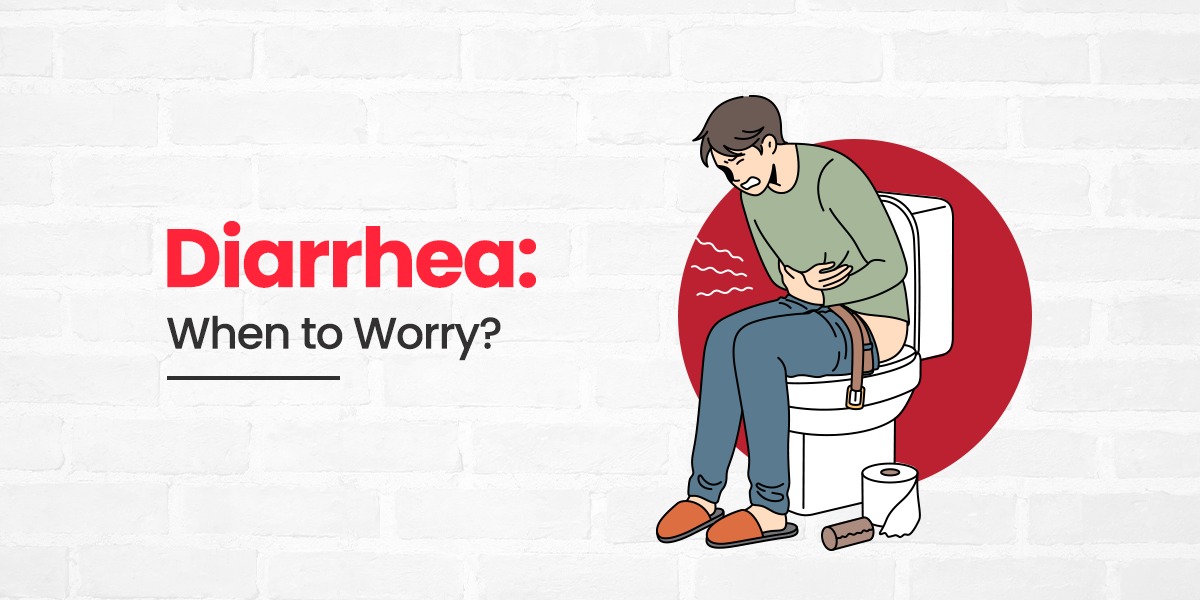When Is Diarrhea a Sign of Something Serious?

Well, no one likes talking about diarrhea. It’s uncomfortable, awkward, and, well… messy. But it happens to all of us. A sudden dash to the bathroom isn’t exactly unusual after a dodgy meal or a bout of the flu. Most of the time, it’s nothing to worry about.
But what if it doesn’t go away? What if it keeps coming back, or comes with other strange symptoms?
That’s when it’s time to pay attention.
While most cases are mild and go away on their own, diarrhea can sometimes be a sign of something more serious. Knowing when to wait it out—and when to see a doctor—can make all the difference.
First Things First: What Is Diarrhea, Exactly?
Sounds like a silly question, but it’s worth clearing up.
Diarrhea is when you have loose, watery stools more frequently than usual. Some people go once or twice a day, normally—others go three or four. It’s not just about frequency; it’s also about the texture and urgency.
Most of the time, it’s caused by an infection (think: a virus or bacteria), something you ate, or a reaction to medication. But that’s not always the case.
Common Causes: Why It Happens in the First Place
So, what causes diarrhea in most people?
Here are the usual suspects:
- Infections: Viral (like norovirus), bacterial (like E. coli or salmonella), or parasites from contaminated food or water
- Food Intolerance: Lactose, artificial sweeteners, or gluten can trigger it in some people
- Medication Side Effects: Antibiotics, for example, are known to mess with your gut
- Digestive Conditions: Like irritable bowel syndrome (IBS), inflammatory bowel disease (IBD), or celiac disease
- Stress and Anxiety: Yes, your gut and brain are tightly connected
Sometimes, it’s easy to spot the cause. Other times, not so much. If it’s happening over and over again, and you can’t figure out why, don’t ignore it.
When Should You Be Worried?
Here’s the big question: When is diarrhea a sign of something serious?
Generally, if it lasts more than two days, especially in adults, it’s time to dig deeper. But duration isn’t the only red flag. Watch out for these warning signs:
- Blood in your stool (bright red or black and tarry)
- High fever (over 101°F)
- Severe stomach pain or cramping
- Signs of dehydration – dry mouth, dark urine, dizziness
- Weight loss without trying
- Diarrhea that wakes you up at night
- It keeps coming back—like a few days better, then bad again
These can be signs of something more serious, like a bacterial infection, a chronic gut condition, or even colon issues that need attention.
What About Kids and Seniors?
Diarrhea can be more dangerous for the very young and the elderly. Their bodies lose fluids quickly, which can lead to dehydration faster than you’d expect.
For babies, even 24 hours of frequent diarrhea can be risky. Signs like sunken eyes, no tears when crying, or dry diapers should never be ignored.
In older adults, especially those with other health issues, diarrhea can quickly lead to weakness, confusion, and serious complications.
Diarrhea Symptoms That Shouldn’t Be Ignored
Aside from just watery stools, other diarrhea symptoms might point to a bigger issue:
- Mucus in the stool
- Bad-smelling or greasy stools (could mean malabsorption)
- Persistent bloating or gas
- Feeling tired or run down all the time
Even if it feels mild now, if it’s happening often—or if your gut “just doesn’t feel right”—don’t brush it off.
What Does Treatment Look Like?
For most simple cases, diarrhea treatment is all about hydration and rest. Here’s what usually helps:
- Drink plenty of fluids – water, oral rehydration salts, clear broths
- Eat light – think plain rice, toast, bananas, applesauce
- Avoid dairy, fatty foods, and caffeine until things settle down
- Over-the-counter meds – like loperamide, but only if advised by a doctor
But if your symptoms are more serious or you’re dealing with chronic diarrhea, your treatment will depend on the cause. That might include:
- Antibiotics (if it’s bacterial)
- Probiotics to help balance gut bacteria
- Diet changes if food intolerance is involved
- Prescription meds for conditions like Crohn’s or ulcerative colitis
- Stress management if anxiety is triggering gut issues
The key? Get a proper diagnosis before trying to treat yourself.
When to See a Specialist
If diarrhea lasts more than a few days, keeps coming back, or includes any of the red flags we mentioned, it’s time to get help.
A gastroenterologist specializes in digestive health. They’ll run the right tests—like stool analysis, blood work, or a colonoscopy—to figure out what’s really going on. And they won’t make you feel embarrassed. Trust us, they’ve seen it all.
If you’re in or near Kanpur, book a visit with the best gastroenterologist in Kanpur for peace of mind and proper care.
Conclusion
Your digestive system is smarter than you think. When it’s trying to get your attention, it’s probably for a reason. If something feels “off,” don’t ignore that gut feeling. Listen to it. Ask questions. And don’t hesitate to reach out to a doctor if things don’t improve.
Also Read: Healthy Habits for Digestive Health

 Call-an-Ambulance
Call-an-Ambulance



